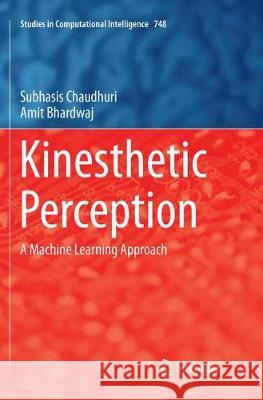Kinesthetic Perception: A Machine Learning Approach » książka
topmenu
Kinesthetic Perception: A Machine Learning Approach
ISBN-13: 9789811349317 / Angielski / Miękka / 2019 / 138 str.
Kategorie:
Kategorie BISAC:
Wydawca:
Springer
Seria wydawnicza:
Język:
Angielski
ISBN-13:
9789811349317
Rok wydania:
2019
Wydanie:
Softcover Repri
Ilość stron:
138
Waga:
0.23 kg
Wymiary:
23.37 x 25.15 x 0.76
Oprawa:
Miękka
Wolumenów:
01











